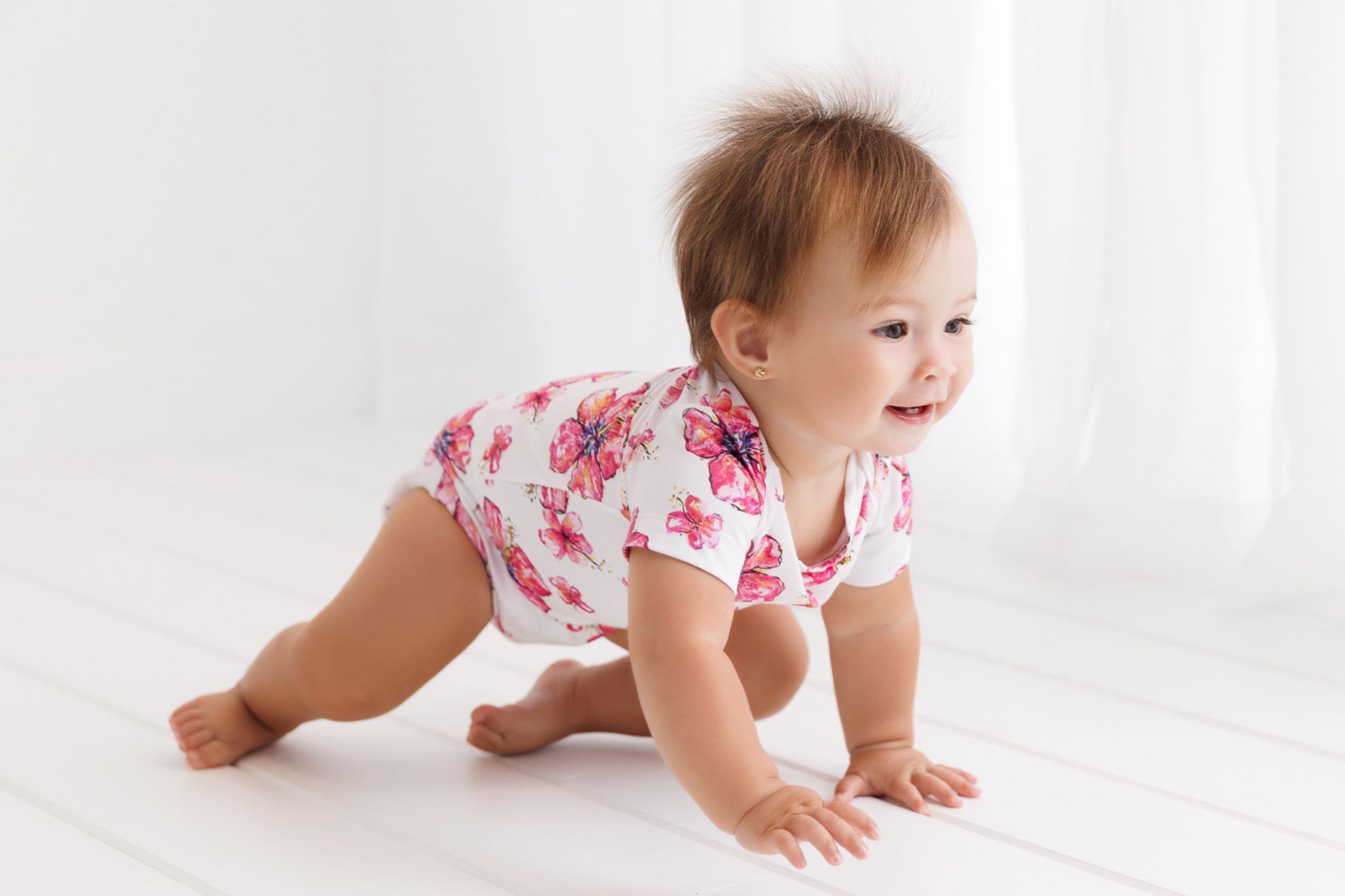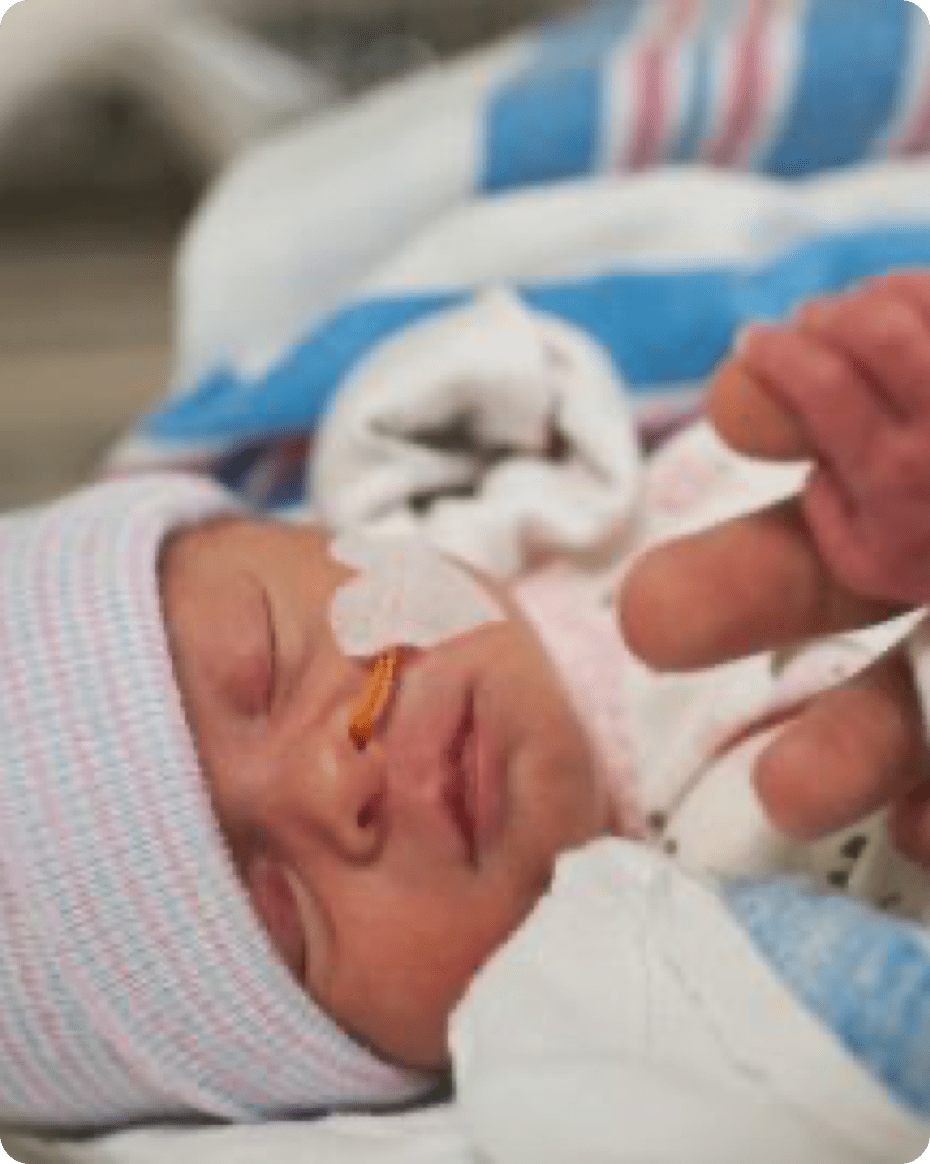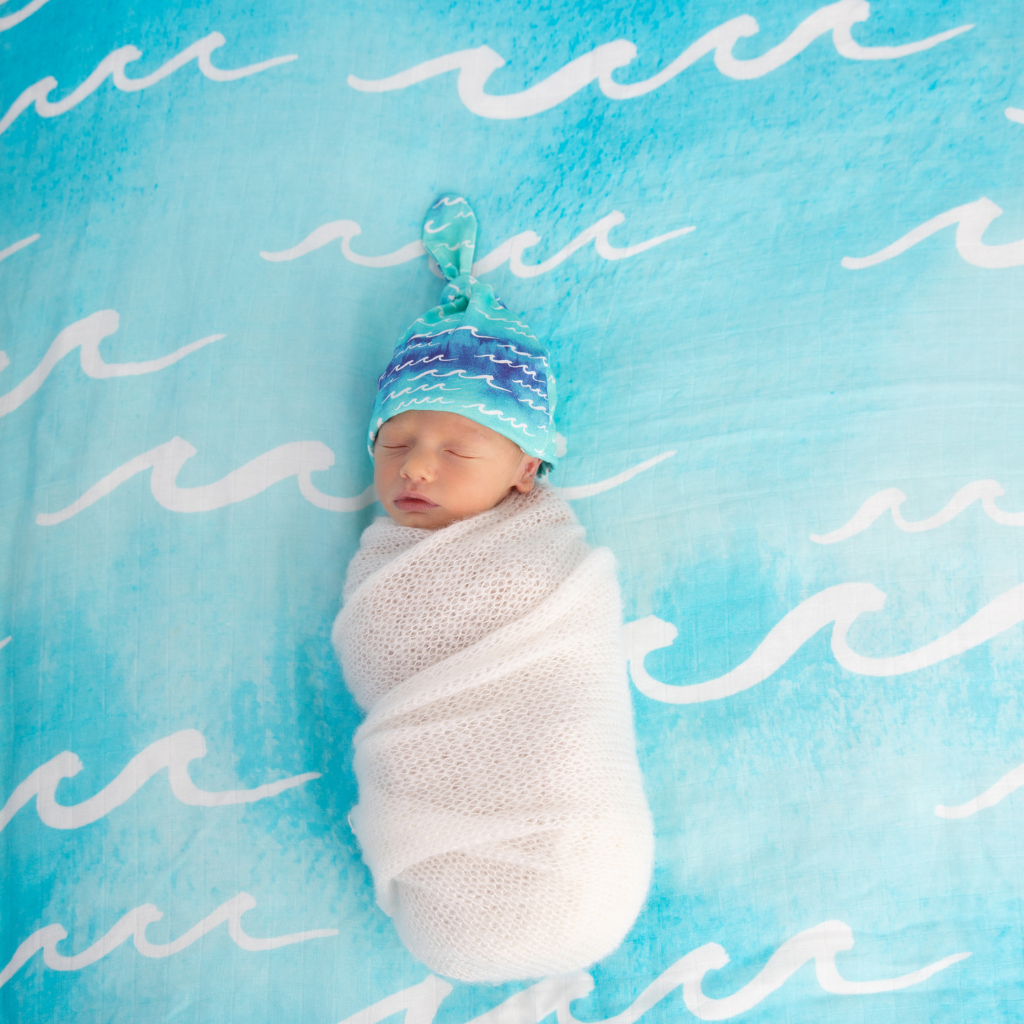The baby-to-toddler stage doesn't happen overnight, but it can feel that way. One day your little one is crawling around, babbling, and clinging to you for everything. Then suddenly, they're walking, saying “no,” and insisting on doing things by themselves.
This shift often catches parents off guard. Sleep changes. Tantrums begin. Your once-simple routines don't always work anymore. But when you understand what's changing, and why, it gets easier to respond with patience instead of frustration.
When Does a Baby Become a Toddler?
Most little ones move into the toddler stage sometime between 12 and 18 months. It doesn't depend on one milestone, but on a mix of changes happening around the same time.
You'll know toddlerhood is beginning when:
-
Your child starts walking (or wants to).
-
They push for independence.
-
They react more strongly to change or frustration.
-
Routines that used to work start falling apart.
Babies depend fully on you for structure and comfort. Toddlers begin pulling away, and that's a normal, healthy part of development. It's a big shift for them and for you, but knowing what's coming can help you stay steady through it.
Before we dive in, it helps to remember: not every toddler hits these changes at the same time or in the same way. But most of you will notice these patterns start to unfold as their baby moves toward toddlerhood.
1. A Growing Need for Independence (Without Letting Go of You)
Around 12–18 months, your toddler starts to realize they're a separate person from you, and they want to test that out. You’ll see it in small ways: wanting to put on their own shoes, refusing help, or insisting “mine.” This is a normal part of brain development. They're learning autonomy, but they don't yet have the emotional tools to manage the freedom they crave.
That's why this stage can feel confusing. Your child may want to be independent one minute, then meltdown when they can't zip up a jacket. They'll reach for you one second and push you away the next. It's not a contradiction; it's learning in real time.
What helps:
-
Offer simple choices to give them a sense of control: “Do you want the blue cup or the green one?”
-
Use routine moments to build connection: getting dressed, brushing teeth, and bedtime can become bonding rituals.
-
Stay calm when they resist help or get frustrated. You're the anchor that makes exploration feel safe.
Give them the space to try, and the safety to return. That balance—freedom with reassurance—is what they're asking for.
2. Language Takes Off—But Emotions Move Faster
During the toddler transition, your child's brain is working hard to process everything they see, feel, and experience. Language is just beginning to catch up, which means they often know what they want or how they feel—but they don't yet have the words to express it.
This gap between understanding and communication leads to frustration. It's one of the reasons tantrums often start during this stage. They're not “acting out”—they're overwhelmed, and they don't yet know how to explain what's wrong.
What helps:
-
Narrate daily life simply: “You're feeling sad because I turned off the TV.” Labeling their emotions helps them learn the words over time.
-
Use consistent phrases for common routines or limits (“One more minute, then all done”) so they start to understand what's coming.
-
Stay present during meltdowns, even when you're unsure what they need. Your calm helps regulate their chaos.
This is a time when your patience matters more than your solutions. Over time, their words will catch up—and so will their ability to cope.
3. Sleep Routines Start to Shift—Sometimes Suddenly
Just when you've settled into a predictable nap or bedtime rhythm, everything changes. Many toddlers around 12 to 24 months start resisting naps, waking more during the night, or struggling with bedtime. This can feel like regression—but it's often a normal part of their development.
New physical skills (like walking), mental leaps, and separation anxiety can all disrupt sleep during this stage. As their world gets bigger, it can be harder to wind down and let go.
What helps:
-
Stick to a consistent pre-sleep routine, even if timing shifts. Repetition builds a sense of security.
-
Watch for new sleep cues. Toddlers might need slightly less daytime sleep, or different nap times.
-
Offer comfort and presence during wake-ups. Their sleep needs are still evolving, and reassurance goes a long way.
Sleep during this stage isn't about perfect schedules—it's about creating an environment that feels safe and predictable as your toddler adjusts.
4. Big Emotions Take Center Stage (and the Brain Isn’t Ready to Regulate Yet)
As toddlers grow, their emotional world expands faster than their brain can process. Between 12 and 36 months, their limbic system (the part of the brain responsible for emotions) is highly active. But the prefrontal cortex—which helps with impulse control and reasoning—is still very underdeveloped.
That means toddlers feel things deeply but don't yet have the ability to pause, self-soothe, or explain what they're going through. This mismatch leads to intense reactions: hitting, screaming, throwing, or collapsing into tears over something small.
What helps:
-
Stay close and grounded during emotional outbursts. You can't “fix” the feeling, but your calm helps their nervous system settle.
-
Use simple, validating language: “You're mad because I said no. That's hard.” Validation isn't permission—it's connection.
-
Offer boundaries with warmth. Toddlers need to hear “no,” but they need it wrapped in safety, not frustration.
This is one of the hardest parts of toddlerhood—but it's also where your presence has the biggest impact. You don't need perfect words. You just need to show up.
5. Social Awareness Grows, But Sharing and Taking Turns Don’t Come Naturally
As toddlers become more aware of the people around them, they start showing signs of social development: watching other kids, mimicking adults, or becoming more affectionate. But this doesn’t mean they’re ready to share or play cooperatively just yet.
Between 1 and 3 years, toddlers are still in what's called “parallel play”, they play next to other children, not with them. Sharing, turn-taking, and empathy all require a mix of emotional maturity and language that takes time to build.
What helps:
-
Set realistic expectations. A toddler grabbing toys isn’t being selfish—they're learning how ownership works.
-
Narrate gently: “You're both playing with the blocks. Let's take turns.” They may not get it right away, but the repetition matters.
-
Model kindness and inclusion during play. Toddlers learn from what they see, more than what they're told.
Social skills don't come from pressure, they come from time, guidance, and lots of repetition. This stage is full of practice, not perfection.
6. They Start Exploring the World and Testing Limits Along the Way
As toddlers gain mobility and confidence, their curiosity grows. They want to climb, open, throw, and touch everything in sight—not to challenge you, but to understand how the world works. This is healthy development. But as you already know, it can also be exhausting.
Around this age, toddlers also begin testing boundaries. Not because they're being “naughty,” but because they're learning what's safe, what's allowed, and how you'll respond. It's part of how they build trust and security.
What helps:
-
Keep your home toddler-ready: safe zones for climbing, exploring, and getting messy.
-
Use clear, simple limits: “Not for touching,” or “That's not safe.” Stay calm and repeat as needed.
-
Say yes when you can. Offering appropriate ways to explore gives fewer reasons for power struggles.
They're not trying to push your buttons, they're trying to figure out where the edges are. And your steady presence gives them the confidence to keep exploring.
What Comes Next
This stage is full of change, some of it expected, some of it not. As your baby grows into a toddler, your daily routines, your role, and your child's needs will keep evolving. You won't always have the right response in the moment, and that's okay.
Focus on what's in front of you. Stay consistent. Keep things simple. And when something stops working, adjust. Toddlers thrive with structure, clear limits, and room to explore safely.
You're not starting over, you're just learning how to parent a different version of the same little person. One day at a time.









